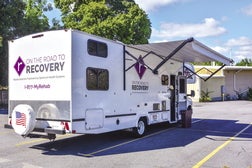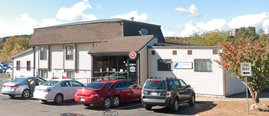State’s heroin crisis forcing service providers to answer higher demand
 Chuck Faris of Spectrum Health Systems: Federal reimbursements for addictions barely cover costs.
Chuck Faris of Spectrum Health Systems: Federal reimbursements for addictions barely cover costs.
The law of supply and demand is fundamental to any business model, but success depends on the ability to scale up operations to meet the demand.
And in the addiction treatment industry, which faces pressure from surging demand for opiate abuse treatment, it can be difficult to expand to accommodate client needs, according to industry leaders in Central Massachusetts.
Last month, Gov. Deval Patrick declared a public health emergency over opiate abuse after at least 140 people in the state died from suspected heroin overdoses in the previous several months. And the number of unintentional overdoses increased 90 percent between 2000 and 2012 — unprecedented figures, according to Patrick's office.
Adding to those numbers was the media attention generated by the heroin-induced deaths of Academy Award-winning actor Philip Seymour Hoffman in February, and Glee actor Cory Monteith, as well as media reports across the country about the growing popularity of heroin use outside urban areas, particularly among suburban youth.
‘This is killing people’
According to Chuck Faris, president and CEO of Worcester-based Spectrum Health Systems Inc., heroin abuse in Central Massachusetts has been expanding in much the same way. It's been a longstanding problem in cities like Worcester and Fitchburg, but now Spectrum treats more clients who come from the suburbs, with the rate of addiction increases rising the quickest among people between the ages of 18 and 25.
While cocaine abuse in the mid-1980s may have rivaled the rate of heroin addiction today, Faris said this is the worst epidemic he's seen in his 43-year career.
Cocaine addiction “wasn't killing people,” Faris said. “This is killing people.”
Faris said tighter regulations for prescribing opiates in pill form has forced users to look elsewhere for a fix, and Faris said a bag of heroin sells on the street for about as much as a pack of cigarettes. It's plentiful, and he believes the Northeast region — home to a large number of depressed, former industrial cities — is a particular hot spot for dealers looking to make easy money.
It's easy to believe that Spectrum's treatment centers are bustling.
Spectrum delivers medication-assisted treatment at its two Worcester centers on Lincoln and Merrick streets. At the busier of the two, on Lincoln Street, about 1,100 patients are treated each and every day, according to Faris.
Breaking even
Though volumes are large, it's a mistake to think Spectrum and similar organizations are making a lot of money off the heroin epidemic. While Spectrum is opening new treatment facilities in Haverhill and Waltham, and has opened three new centers in nearby Framingham Milford, and Southbridge in the last four months, margins are slim. Farissaid that's because the majority of its revenue comes from the Centers for Medicare and Medicaid, and those payments “are not great.”
“They barely cover your costs and that's about it,” Faris said, noting that in-patient treatment centers tend to yield higher payments, but are much costlier to build.
New funding may help
Along with Patrick's declaration came talk of new funding to support agencies working on the frontlines to treat addicts. Though nothing definitive has been proposed, Patrick pledged $20 million to support treatment services, as well as the state Department of Corrections and county sheriffs' offices.
Richard Hooks Wayman, CEO of Fitchburg-based social service agency LUK Inc., said additional funding would provide a welcome boost to organizations that work with addicts. Treating those addicted to heroin and other opiates is just one component of LUK's services, and it could certainly stand to be expanded, Wayman said.
But LUK depends largely on state and federal grants to fund its treatment program, which includes outpatient counseling and case management services.
“I think … we'd like to expand our lines of business around behavioral health in our area. But it's not as simple as opening new clinics,” Wayman said.
Many of LUK's services can't be billed to insurance payers, so like Spectrum, operating on thin margins is the norm. Wayman said the key to determining whether additional funding will help LUK and other agencies in expanding addiction treatment services is how that money is its rolled out.
“I think it's more about what level of investment (the state will) make and how it will be spread across the commonwealth,” Wayman said.













0 Comments